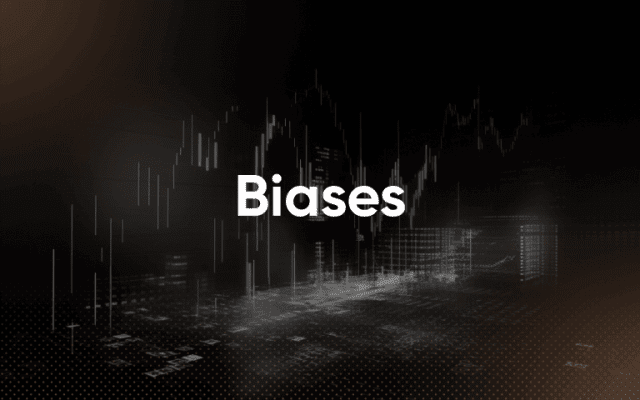Navigating the hot-hand fallacy and gambler’s fallacy in trading

Whether you’re new to trading or experienced in the markets, gaining a better understanding of cognitive biases and how these could affect your trading activities is crucial to making better-informed decisions.
Read on to learn more about two prevalent psychological phenomena that can impact traders – the hot-hand fallacy and the gambler’s fallacy – and how to recognise and mitigate these biases to make more objective trading decisions.
What is cognitive bias in trading?
Traders, like all individuals, are susceptible to various cognitive biases – any of which can impact their decisions in the financial markets. These biases can arise from anything, including general psychological tendencies or emotional responses to specific trades. When a trader is subject to these biases, irrational trading behaviours and substandard trading strategies can closely follow.
Recognising these cognitive biases is essential for traders to make better-informed, more objective decisions.
Hot-hand fallacy
What is the hot-hand fallacy?
The hot-hand fallacy is a cognitive bias that can cause traders to assume a winning streak is likely to continue, even if there are indications to the contrary. After closing a successful position, a trader may follow up with another trade, hoping to make further gains.
Why does the hot-hand fallacy happen?
The hot-hand fallacy can happen for two main reasons: pattern seeking and insufficient sample size. As for the former, people generally like to see patterns in things, even when in reality, there are none. If you’ve ever seen a cloud and thought it looked like something, you’ll know what that means.
As for the latter, when people see a pattern over a small sample, they may think the sample is sufficiently large to use as a basis for future decisions.
How does the hot-hand fallacy impact trading?
The hot-hand fallacy can impact traders’ decisions in the markets in many different ways. Most notably, it could trigger:
-
Excessive risk-taking. The hot-hand fallacy can lead to overconfidence, which may cause traders to take more risk than they’re otherwise comfortable with.
-
Ignorance to signs of reversal. Under the influence of the hot-hand fallacy, traders may keep a winning position open for too long – even if there are clear signs that a trend reversal is likely to occur.
-
Irrational decisions. Traders who succumb to the hot-hand fallacy may open new positions impulsively.
-
Confirmation bias. The hot-hand fallacy can give rise confirmation bias, where traders deliberately seek out information that reinforces their beliefs. It may lead traders to look for evidence that their next trade will be successful, while ignoring the bigger picture.
Gambler’s fallacy
What is gambler’s fallacy?
Gambler’s fallacy is when a trader believes the likelihood of a price trend continuing decreases as time passes.
Let’s assume you flip a coin five times, and every time it lands on heads. Will it fall on tails on the sixth occasion? If your answer is ‘yes’, you may be a prey to the gambler’s fallacy bias.
Why does gambler’s fallacy happen?
The gambler’s fallacy can happen because a trader mistakenly believes that if a certain outcome has not occurred for some time, it is more likely to happen soon. This is rooted in an inaccurate understanding of probability.
In reality, a consistent series of past events does not affect the probability of a particular event happening in the future. Likewise in trading: your past positions do not correspond to your future returns. Each trade outcome is independent.
How does gambler’s fallacy impact trading?
In trading, gambler’s fallacy can cause traders to close a position prematurely because they believe that an instrument’s price is unlikely to continue its trend, and that the chances of it rising (or falling, in the case of a short position) further decrease with time.
A classic example of gambler’s fallacy in trading is when traders start to close their positions on an asset that is continuously making new highs. They are simply afraid that the longer the price goes up the sooner it will reverse.
Conversely, traders affected by the gambler’s fallacy bias may continue to increase the volume of their positions despite witnessing mounting losses – erroneously believing that price will more likely change direction with increasing losses.
How to avoid the gambler’s fallacy and the hot-hand fallacy
There are several tactics you can use to identify the gambler’s fallacy and the hot-hand fallacy, and prevent them from affecting your trading decisions.
Firstly, you must acknowledge that these fallacies exist. It may sound obvious, but simply recognising that the fallacies could affect you will give you a better grasp on whether or not they’re coming into play when you trade.
Next, it’s useful to conduct detailed research. Conducting market analysis using a variety of sources can help you base your decisions on facts rather than emotions. Drawing on this analysis can be key to formulating a wider trading strategy. You can learn more about trading strategies in our comprehensive guides.
To keep on top of progress, keeping a trading diary is critical. Having a record of your trading decisions, including the thinking process behind them, may help guard against the gambler’s fallacy and hot-hand fallacy. This is because having the facts and the reasoning laid out can help you identify whether the fallacies have been affecting your decisions.
As you progress through your trading journey, seeking feedback about your trading activities from fellow traders or finance professionals is key. Sometimes an external perspective can help you realise that cognitive biases are in fact impacting your trading decisions. You could also try a demo trading account to practise trading and develop your trading strategies without risking real money.
Want to learn more about trading psychology?
Take a look at some of our other comprehensive guides.

Effects in trading

Sentiment in trading

Biases in trading
Frequently asked questions
What is the hot-hand fallacy in simple terms?
In trading, the hot-hand fallacy is a cognitive bias that leads traders to believe that a successful streak will continue. A trader will often try to follow up a winning position with another in hope that it will also be a success, even if there are signs that it will be otherwise.
What is an example of the hot-hand fallacy?
Imagine that a trader has been closing profitable CFD positions on a particular market for several weeks, and is starting to feel like they have a ‘hot hand.’ They may begin taking more risk, assuming that their winning streak will continue, and end up making a trade that results in a significant loss.
What is hot-hand fallacy vs gambler’s fallacy?
Gambler’s fallacy bias is the opposite of hot-hand fallacy bias, which is the belief that the current trend is likely to continue. Conversely, gambler’s fallacy is when a trader believes the likelihood of a price trend continuing decreases as time passes.
Is the gambler’s fallacy wrong?
The gambler’s fallacy is a misconception. It arises when individuals - in this case, traders - believe that the outcome of a random event is influenced directly by previous outcomes. This leads them to expect a reversal of results. In reality, each event is independent and unaffected by past occurrences, much like in games of chance. Gambler’s fallacy can lead to poor decision-making in trading, as it ignores the fundamental principles of probability.
Is gambler's fallacy a heuristic?
No, the gambler's fallacy is not a heuristic. Heuristics are rules of thumb or mental shortcuts that people use to make decisions more efficiently. These often rely on experience or intuition. Conversely, the gambler's fallacy involves a misjudgment of probability and randomness, assuming that past events influence future outcomes in random processes.